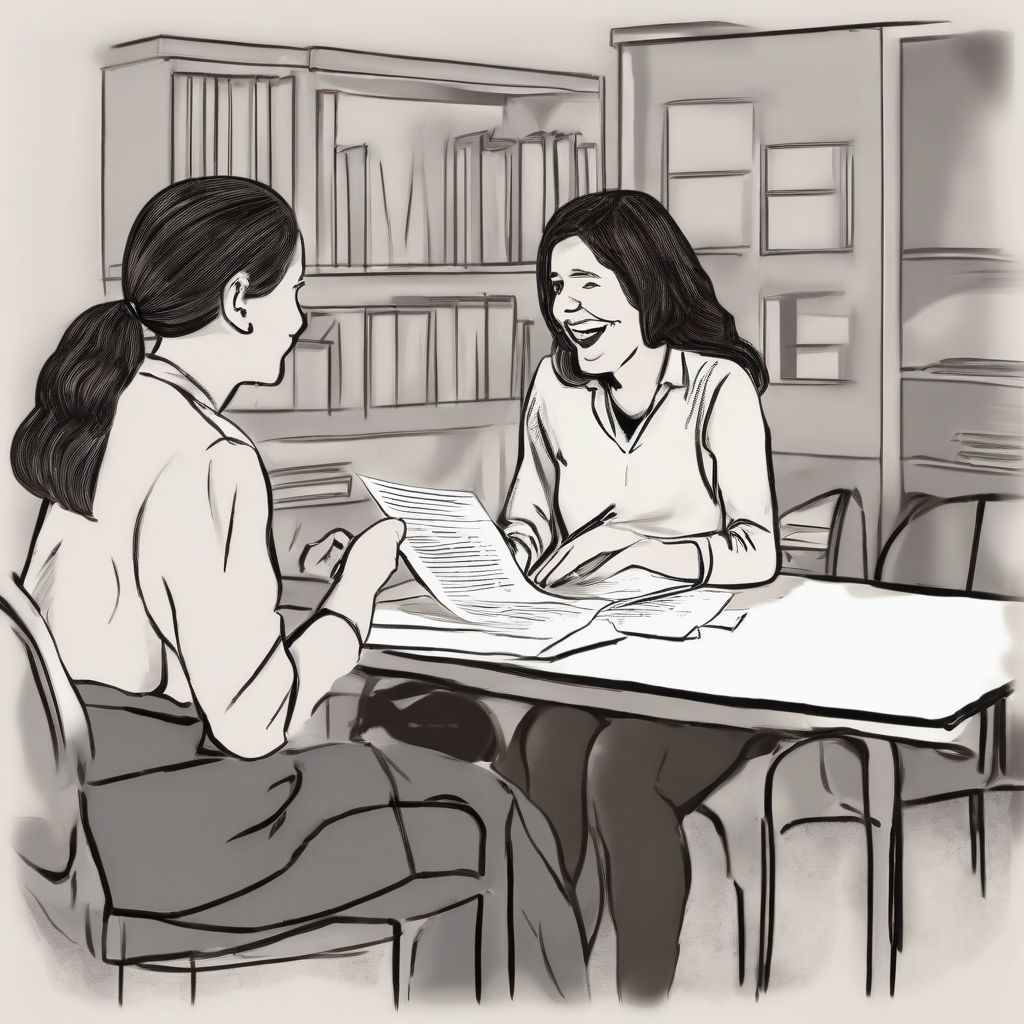“It takes a village to raise a child,” the old adage wisely states. And in that village, parents and teachers are key figures, working together to nurture young minds. One of the most valuable ways they connect is through parent-teacher conferences. But these meetings are more than just a formality; they’re golden opportunities to build bridges, foster understanding, and create a united front to support a child’s growth.
Understanding the Impact of Parent-Teacher Conferences
Parent-teacher conferences are formal or informal meetings where parents and teachers can discuss a student’s academic, social, and emotional progress. They offer a dedicated time for open communication and collaboration, moving beyond report cards and grades to paint a holistic picture of the child’s development.
 Parent-teacher conference discussion
Parent-teacher conference discussion
The Benefits: Why Parent-Teacher Conferences Matter
These meetings offer a wealth of benefits for students, parents, and educators alike:
For Students:
- Increased Engagement: When children see their parents and teachers working together, it reinforces the importance of education and encourages active participation.
- Personalized Learning: Conferences allow for tailored strategies to address individual learning styles, strengths, and areas needing improvement.
- Improved Behavior: Open communication can help identify and address underlying issues impacting a student’s behavior, both in and out of the classroom.
For Parents:
- Valuable Insights: Conferences provide a window into a child’s classroom life, their learning environment, and social interactions.
- Stronger Relationships: Building rapport with teachers fosters trust and opens channels for ongoing communication throughout the school year.
- Active Involvement: Parents gain the knowledge and tools to support their child’s learning journey effectively at home.
For Teachers:
- Holistic Understanding: Gaining insights from parents about a child’s home life, interests, and challenges provides a more complete picture of the student.
- Strengthened Partnerships: Collaboration with parents builds a team approach to supporting the child’s unique needs.
- Enhanced Teaching Strategies: Feedback from parents can lead to adjustments in teaching methods and classroom activities for greater effectiveness.
Making the Most of Parent-Teacher Conferences: Tips for Success
- Come Prepared: Bring questions, notes on your child’s progress, and any concerns you want to discuss.
- Active Listening: Pay attention to what the teacher is saying, ask clarifying questions, and take notes.
- Open Communication: Share information about your child’s strengths, challenges, and learning styles openly and honestly.
- Collaborative Approach: Work together with the teacher to develop a plan to support your child’s academic and personal growth.
- Follow Up: After the conference, review the discussed points with your child and implement any agreed-upon strategies.
Beyond the Basics: Addressing Common Concerns
Parent-teacher conferences can also be a time to discuss more sensitive or challenging topics. Here’s how to approach them constructively:
- Academic Difficulties: Express concerns calmly and work with the teacher to identify strategies for improvement, such as tutoring or adjusted assignments.
- Behavioral Issues: Discuss observations from both home and school to understand the root of the problem and develop a plan to address it collaboratively.
- Social Challenges: Share any concerns about friendships, bullying, or social isolation, and explore ways to foster a positive and supportive environment.
Cultivating a Culture of Communication
Remember, parent-teacher conferences shouldn’t be a once-a-year event. Regular communication throughout the year strengthens the parent-teacher partnership and creates a supportive network for the child’s success.
Consider these tips for ongoing communication:
- Utilize Technology: Many schools use online platforms or apps for sharing updates, assignments, and messages.
- Schedule Short Calls or Emails: Brief check-ins can be helpful for addressing specific concerns or celebrating successes.
- Attend School Events: Participating in school activities allows you to observe your child in the school environment and connect with teachers informally.
Conclusion: A Shared Journey Toward Success
Parent-teacher conferences are invaluable opportunities to build bridges, foster understanding, and create a united front in support of a child’s education. By embracing open communication, active listening, and collaborative problem-solving, parents and teachers can work together to empower children to reach their full potential. Remember, education is a shared journey, and these conferences are vital milestones along the way.
Take the time to engage in these conversations, ask questions, and be an active participant in your child’s education. The benefits of a strong parent-teacher partnership will extend far beyond the classroom, shaping your child’s love of learning and their future success.
[amazon bestseller=”parent teacher communication books”]
